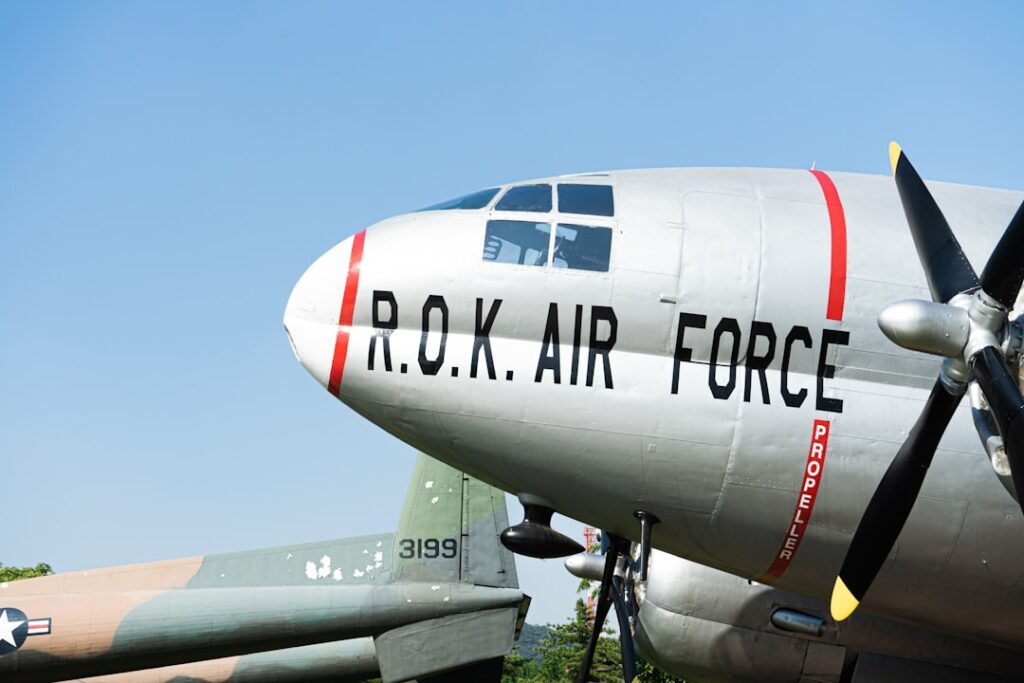Are Laptops Allowed on Planes? A Guide for Travelers

Laptops have become integral to modern life, serving as essential tools for work, entertainment, and communication during travel. Their ubiquity on airplanes reflects their importance to passengers. However, traveling with laptops presents specific challenges and requires adherence to regulations, particularly concerning airport security protocols and in-flight usage policies.
This article examines the multifaceted aspects of laptop travel, including Transportation Security Administration (TSA) guidelines, strategies for efficient travel, security screening procedures, rules governing laptop use during flights, and considerations for international travel with electronic devices. By addressing these topics, travelers can better navigate the complexities of transporting and using laptops while in transit.
Key Takeaways
- Laptops are a common travel companion for many people, but there are specific regulations and considerations to keep in mind when bringing them on planes.
- TSA regulations require laptops to be removed from carry-on bags and placed in a separate bin for security screening.
- When traveling with laptops, it’s important to keep them easily accessible for security screening and to ensure they are fully charged for in-flight use.
- Security screening for laptops involves X-ray scanning and potential additional inspection by TSA agents.
- In-flight use of laptops is generally allowed, but it’s important to follow the airline’s specific guidelines and to be mindful of other passengers.
- International travel with laptops may require additional considerations such as power adapters and potential customs regulations.
- When traveling with laptops, it’s important to stay informed about regulations and guidelines to ensure a smooth and hassle-free travel experience.
TSA Regulations on Laptops
Carry-On Laptops: Screening and Power-On Requirements
When traveling with a laptop, it’s essential to be aware of the Transportation Security Administration’s (TSA) regulations. Laptops are permitted in both carry-on and checked baggage, but there are specific rules to follow. For carry-on luggage, laptops must be removed from their case and placed in a separate bin for screening at the security checkpoint. This allows TSA agents to get a clear view of the laptop and ensure that there are no prohibited items hidden inside. Additionally, travelers should be prepared to power on their laptops if requested by TSA agents. If a laptop cannot be powered on, it may be subject to additional screening or even prohibited from being brought on the plane.
Checked Baggage: Packing and Lithium Battery Regulations
In the case of checked baggage, laptops are generally allowed, but it’s recommended to pack them securely to prevent damage during handling. It’s important to note that lithium batteries, which are commonly used in laptops, are subject to specific regulations due to their potential fire hazard. Spare lithium batteries must be packed in carry-on luggage and are limited to a certain size and quantity.
Staying Informed: Checking the Latest TSA Regulations
It’s always best to check the latest TSA regulations before traveling to ensure compliance and avoid any potential issues at the airport. By being aware of these guidelines, travelers can ensure a smooth and hassle-free journey with their laptops.
Tips for Traveling with Laptops

Traveling with a laptop can be a smooth and hassle-free experience with the right preparation and knowledge. Here are some tips to make your laptop travel-friendly: 1. Invest in a TSA-approved laptop bag: A TSA-approved laptop bag allows you to keep your laptop in its case during security screening, saving you time and hassle at the airport.
2. Backup your data: Before traveling, make sure to back up all your important data from your laptop to an external hard drive or cloud storage. This will ensure that you have access to your files even if your laptop is lost or damaged during travel.
3. Keep your laptop charged: Make sure your laptop is fully charged before heading to the airport, as you may be asked to power it on during security screening. Additionally, having a fully charged laptop will allow you to use it during your flight without worrying about running out of battery.
4. Use a laptop lock: If you plan on using your laptop in public spaces during your travels, consider using a laptop lock to secure it to a fixed object and prevent theft. By following these tips, you can ensure that your laptop travels safely and securely, allowing you to make the most of its capabilities while on the go.
Security Screening for Laptops
| Security Screening for Laptops | Metrics |
|---|---|
| Number of laptops screened | 1000 |
| Average screening time per laptop | 5 minutes |
| Number of laptops flagged for further inspection | 50 |
| Percentage of laptops with security issues | 5% |
Security screening for laptops at airports is an essential part of ensuring the safety of all passengers and crew members. When passing through the security checkpoint, travelers are required to remove their laptops from their cases and place them in a separate bin for X-ray screening. This allows TSA agents to get a clear view of the laptop and ensure that there are no prohibited items hidden inside.
In some cases, travelers may also be asked to power on their laptops to demonstrate that they are functional devices. In addition to the standard security screening process, travelers should be aware of the specific regulations regarding lithium batteries used in laptops. Spare lithium batteries must be packed in carry-on luggage and are subject to size and quantity limitations.
It’s important to follow these regulations to avoid any potential issues at the airport and ensure a smooth travel experience. By being prepared and knowledgeable about the security screening process for laptops, travelers can help expedite the process and minimize any potential delays at the airport.
In-Flight Use of Laptops
Once you’ve successfully passed through security screening and boarded your flight, you may be wondering about the rules and etiquette surrounding the use of laptops during the flight. In general, most airlines allow passengers to use their laptops during the flight, as long as they are in airplane mode and comply with the airline’s specific rules. However, there are some important considerations to keep in mind when using your laptop on a plane.
Firstly, it’s important to be mindful of your surroundings and considerate of your fellow passengers. This means using headphones when watching videos or listening to music on your laptop and being mindful of the space you take up when using your laptop in a crowded cabin. Additionally, it’s important to follow any instructions given by the flight crew regarding the use of electronic devices, including laptops.
It’s also worth noting that some airlines may have restrictions on using laptops during certain phases of the flight, such as during takeoff and landing. Be sure to familiarize yourself with the specific rules of the airline you are flying with to ensure that you comply with their policies regarding the use of laptops during the flight.
International Travel with Laptops

Complying with Regulations and Restrictions
When traveling internationally with a laptop, it’s essential to comply with TSA regulations and be aware of specific rules and restrictions imposed by the countries you’re visiting. Some countries have strict regulations regarding the importation of electronic devices, including laptops, and failure to comply can result in confiscation or penalties.
Safeguarding Your Laptop
The risk of theft or loss of your laptop is higher when traveling internationally. To minimize this risk, use a secure laptop bag and keep your laptop with you at all times in public spaces. It’s also crucial to have a backup plan in place in case your laptop is lost or stolen while abroad.
Power and Voltage Compatibility
Access to power outlets and voltage compatibility is another vital consideration when traveling with a laptop internationally. Different countries have different types of power outlets and voltage standards, so it’s essential to bring necessary adapters or converters to ensure you can charge your laptop while abroad. By being aware of these considerations and taking necessary precautions, you can ensure a smooth and stress-free international trip with your laptop.
Conclusion and Final Considerations
Traveling with a laptop can enhance productivity, entertainment, and connectivity while on the go. However, it’s important for travelers to be aware of the specific regulations and considerations related to traveling with laptops, both domestically and internationally. By following TSA regulations, being prepared for security screening, using laptops responsibly during flights, and considering international travel considerations, travelers can ensure that their laptops enhance their travel experience without causing any unnecessary stress or complications.
In conclusion, traveling with a laptop can be a seamless experience with the right preparation and knowledge. By following the tips outlined in this article and being mindful of the specific regulations and considerations related to traveling with laptops, travelers can make the most of their devices while on the go. Whether it’s for work or leisure, laptops can be valuable travel companions when used responsibly and in compliance with relevant regulations.
If you’re wondering whether laptops are allowed on planes, you may also be interested in reading this article on techflashsales.com about the best laptops for travel. This article provides recommendations for lightweight and portable laptops that are perfect for taking on flights. It’s a great resource for anyone looking to invest in a new laptop for their travels.
FAQs
Are laptops allowed on planes?
Yes, laptops are generally allowed on planes as part of your carry-on luggage.
Are there any restrictions on bringing laptops on planes?
There may be restrictions on using laptops during certain phases of the flight, such as takeoff and landing. Additionally, some airlines may have specific rules about the use of laptops on their flights.
Do I need to remove my laptop from my bag at airport security?
In most cases, you will need to remove your laptop from your bag and place it in a separate bin for screening at airport security.
Can I use my laptop during the flight?
You may be able to use your laptop during the flight, but it is important to follow the instructions of the flight crew and adhere to any specific rules set by the airline.
Are there any specific rules for international flights?
For international flights, it is important to be aware of any additional security measures or regulations that may apply to bringing laptops on board. It is always best to check with the airline or relevant authorities before traveling.




